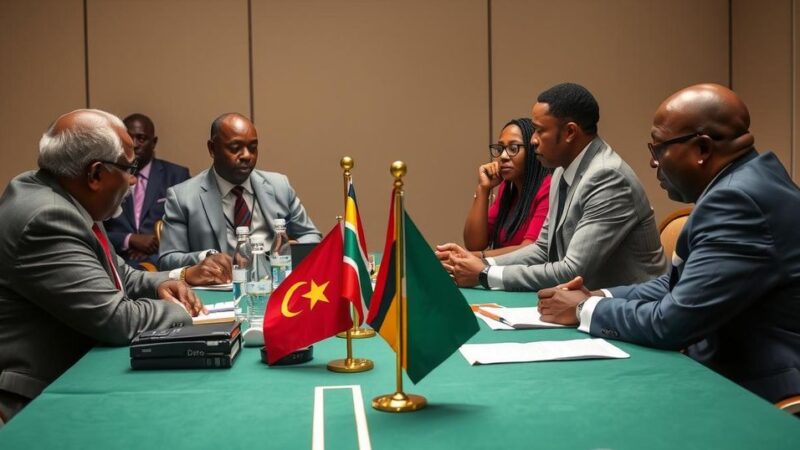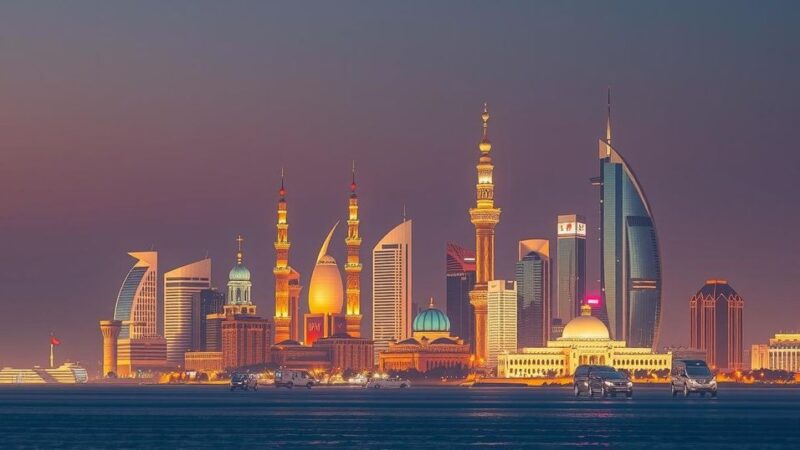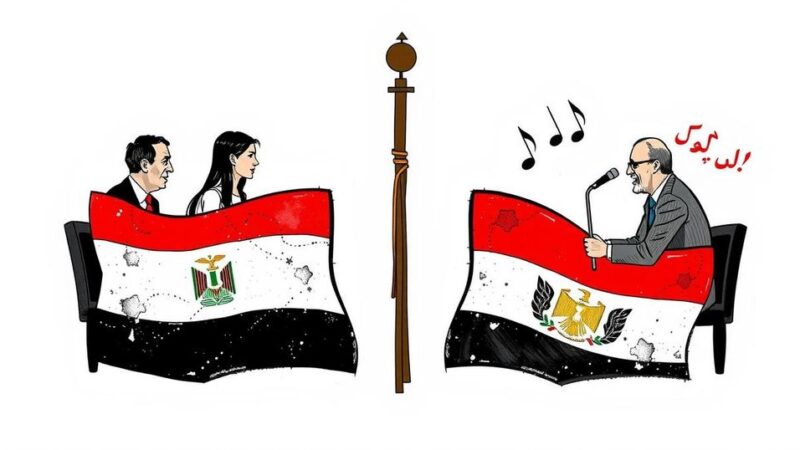Syrian and Lebanese leaders pledge to strengthen their ties amid new political realities following years of tensions. Prime Minister Najib Mikati’s visit to Damascus was marked by discussions on mutual respect, border demarcation, and the urgent return of Syrian refugees to their homeland, signaling a potential thaw in relations.
In a significant diplomatic overture, Syrian Prime Minister Najib Mikati visited Damascus, marking the first visit by a Lebanese head of government since the onset of the Syrian civil war in 2011. This meeting followed the recent change in Syria’s leadership, with Ahmed al-Sharaa expressing hope for renewed and robust relations between the two nations. He emphasized mutual interests and the importance of fostering a positive relationship, particularly now that Lebanon has finally elected a new president after a prolonged political deadlock.
Prime Minister Mikati outlined a vision for a relationship grounded in “mutual respect, equality and national sovereignty,” signaling a potential shift in long-standing tensions, particularly related to Hezbollah’s support in the Syrian conflict. Both nations appear committed to addressing shared challenges, including the plight of approximately two million Syrian refugees in Lebanon and the urgent need for their repatriation. Additionally, discussions have arisen concerning the demarcation of land and maritime borders, which have historically been contentious issues due to Syria’s refusal to delimit borders under the previous regime.
The visit also comes at a time when Lebanon is grappling with its deepest economic crisis in history, exacerbated by the influx of refugees. Mikati has prioritized establishing a joint committee to delineate borders effectively and mitigate illicit border activities that have plagued the region. This shift towards collaboration reflects a moment of opportunity for both leaders to resolve long-standing issues and improve economic conditions through enhanced cooperation. As regional dynamics evolve, both Syria and Lebanon seem poised to cultivate a more stable and strategic partnership.
The relationship between Syria and Lebanon is historically complex, characterized by significant Syrian influence in Lebanese affairs, particularly during and after the Lebanese civil war from 1975 to 1990. Syria maintained a military presence in Lebanon until 2005 following widespread protests. Recent political changes, including the recent election of a new Lebanese president and the shift in Syria’s leadership, have prompted hopes for improved ties. The ongoing crisis in Lebanon, aggravated by a severe economic downturn and the presence of millions of Syrian refugees, necessitates a reevaluation of the bilateral relationship between these neighboring countries.
The meeting between Syrian and Lebanese officials signals a pivotal moment for both nations, as they seek to fortify their ties following years of estrangement. By prioritizing mutual interests, addressing border issues, and tackling the humanitarian crisis regarding Syrian refugees, both countries are laying the groundwork for a more collaborative future. The commitment to respect national sovereignty and engage in constructive dialogue reflects an enlightened approach that could herald a new chapter in Syrian-Lebanese relations, with wider regional implications.
Original Source: www.voanews.com







